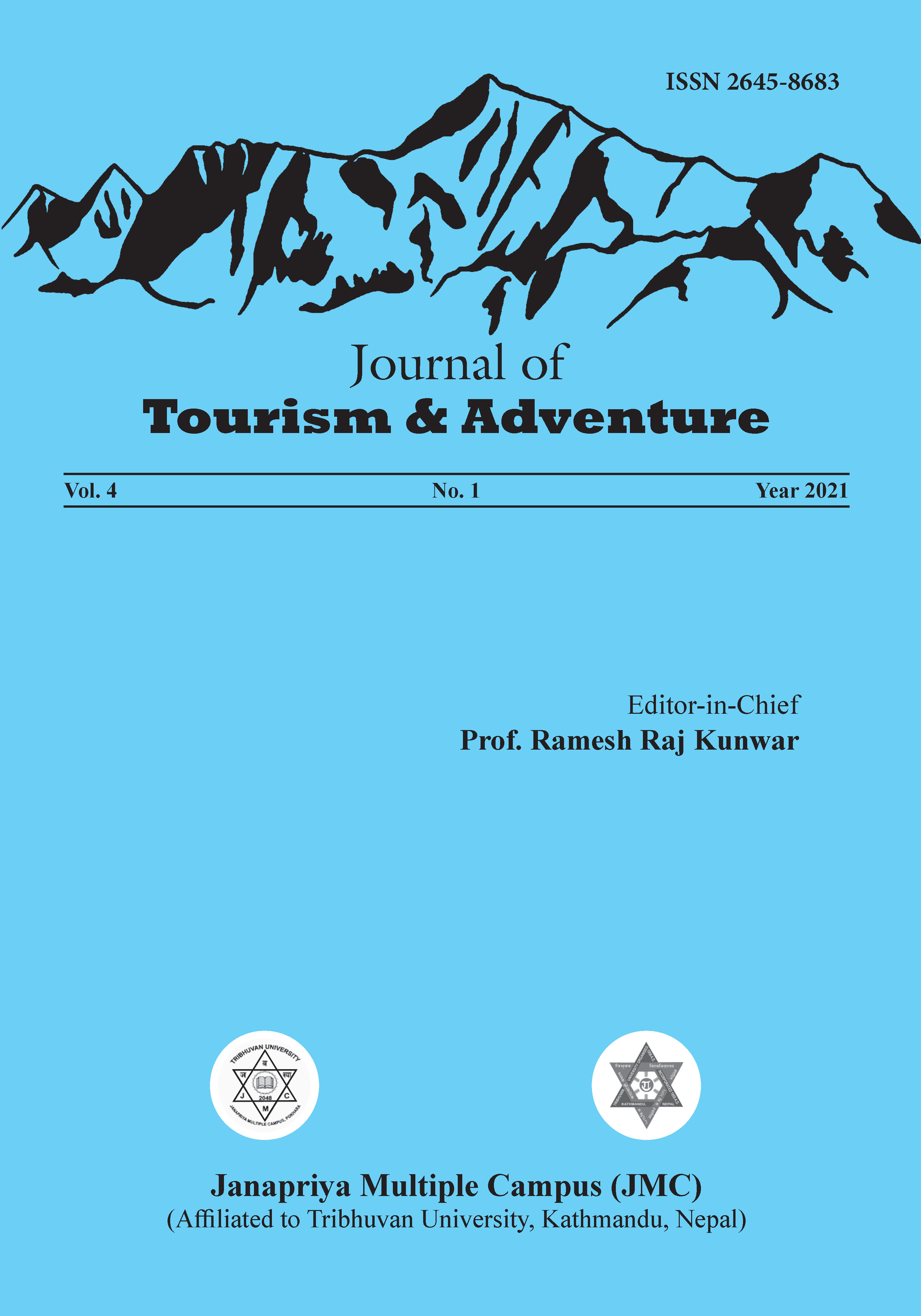Sharia Compliance Implementation Among Hoteliers in Klang Valley, Malaysia
DOI:
https://doi.org/10.3126/jota.v4i1.40679Keywords:
Sharia, theory of planned behaviour, acceptance, halal hotel, tourismAbstract
Sharia compliance hotel has been created to cater to Muslim guests as demand and awareness for Islamic products and services increased. This innovative development can be found in countries where Muslim residents are the majority like Malaysia and Indonesia. However, there is a limited of study on the sharia compliance hotel acceptance among hoteliers particularly in Malaysia. Thus, the main purpose of the study is to examine the factors that contribute to the acceptance of sharia compliance hotel concept implementation among hoteliers. This study focuses on the middle management level employees in 3-5 star hotel situated in the Klang Valley, Malaysia. Drawing from Theory of Planned Behaviour, the specific research objectives are three-fold: 1) to examine the relationship between attitude and sharia compliance hotel acceptance, 2) to investigate the relationship between subjective norm and sharia compliance hotel acceptance, and 3) to examine the relationship between perceived behavioural control and sharia compliance hotel acceptance. The study utilized quantitative research approach to achieve the stated research objectives. For data collection, a self-administered questionnaire was deployed which was developed based on previous studies. For the purpose of the study, the data collection was conducted in fifteen hotels in the Klang Valley that include hotels in Kuala Lumpur, Selangor, Putrajaya and Cyberjaya. The results verified hotelier’s attitude, subjective norms and perceived behavioural control are salient attributes of sharia compliance hotel acceptance in the hotel industry. The research model based on the theory of planned behavior managed to explain more than 60 per cent of the variance in sharia compliance hotel acceptance.
Downloads
Downloads
Published
How to Cite
Issue
Section
License
Authors retain the copyright of their articles.




